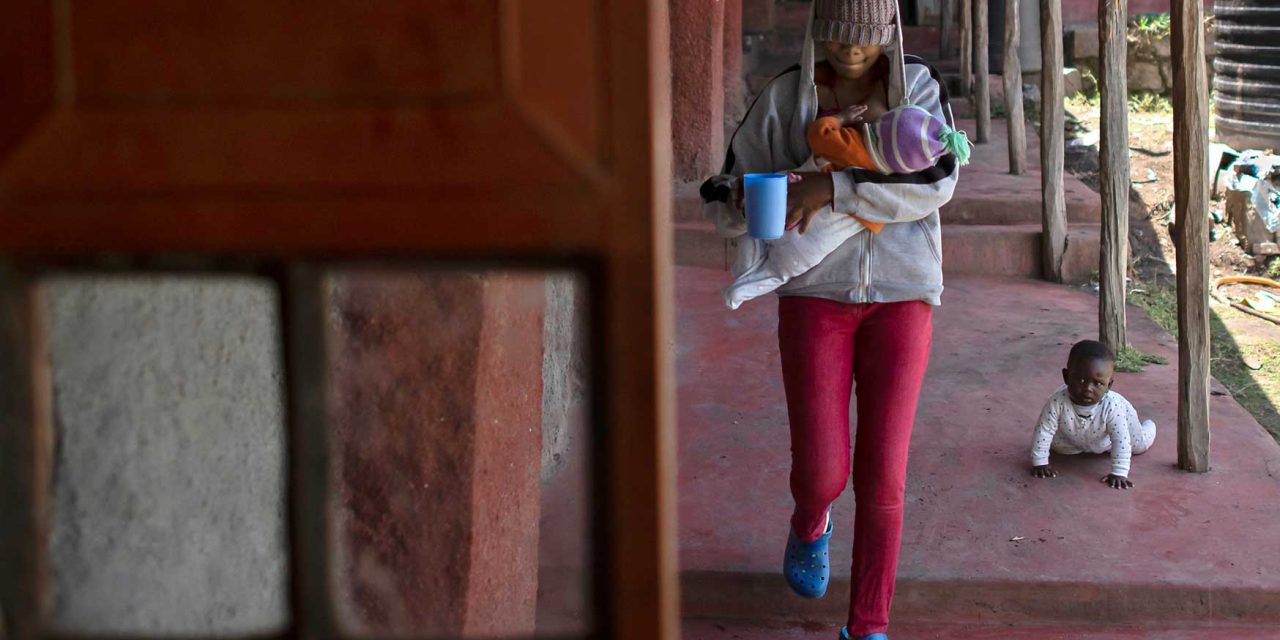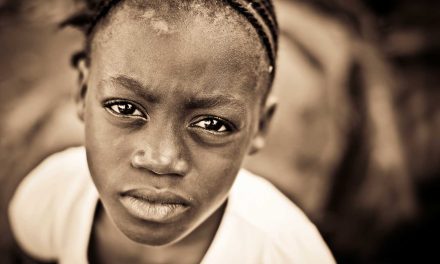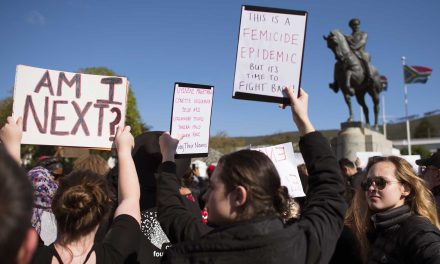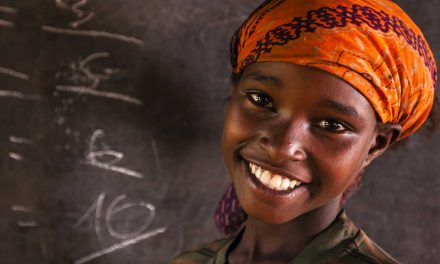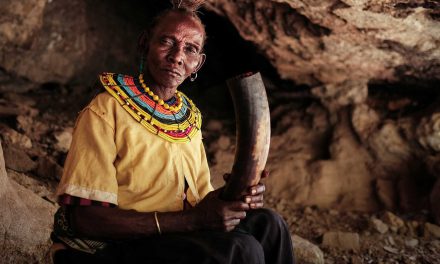The social and economic consequences of the Covid-19 pandemic have created and exacerbated existing risks facing women and girl children in Africa and around the world. Of particular concern are the risks facing girl children. According to a briefing published by Plan International in September 2020, these risks include early and forced marriages, violence, early pregnancy and sexual exploitation.
Referring to South Africa, the United Nations Population Fund (UNFPA) said at a news briefing in October 2020 that “like elsewhere, the lockdown, disruptions, and uncertainties associated with the pandemic have placed adolescent girls at risk of sexual violence, female genital mutilation, child marriage, unintended pregnancies, and disproportionate care work”.
The concern that the consequences of Covid-19 and the subsequent economic uncertainty will set back progress in Africa’s sexual and reproductive health is not unfounded. Increased poverty rates, food insecurity, and economic uncertainty are all related to increases in child marriage and transactional sex and sexual exploitation.
A 2021 paper published by Maricianah Onono, looking at sexual risks facing girl children in Kenya, highlighted that income-generating agricultural intervention improved food security, decreased transactional sex, reduced the prevalence of multiple sexual partners, increased the engagement of girl children in schools, and boosted the confidence of caregivers to educate girl children about sexual and reproductive health (SRH) related issues. These findings mirror others suggesting that socioeconomic circumstances, including poverty, increase the likelihood of girl children engaging in transactional sex and placing them at greater risk of sexual exploitation. Risks associated with this type of behaviour include sexually transmitted infections (STIs), fistulas caused by pregnancy and giving birth before a girl is physically ready, and a lack of access to safe abortions.
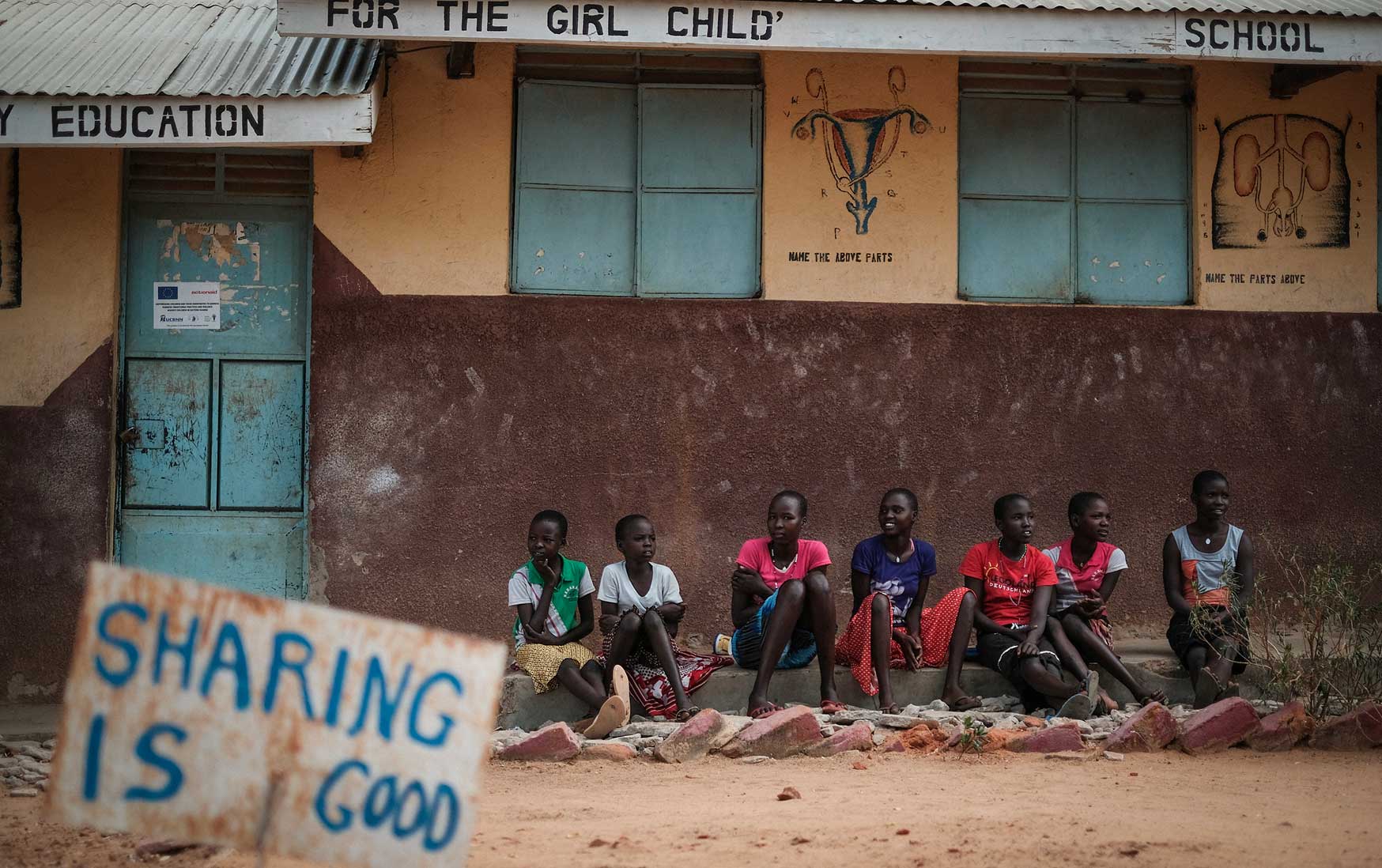
Students at a school in Uganda for girls who have escaped female genital mutilation and child marriage sit outside a classroom.
Transactional sex concerns the African girl child due to the unequal power relations in these relationships. Girl children in transactional sexual relationships, where sex and sexual favours are exchanged for gifts, goods, and money, are more likely to engage in sexual intercourse without a condom and are less likely to be able to demand that their partner use one. The absence of condoms places adolescent females at risk of contracting STIs, including HIV/AIDS, as well as having unwanted pregnancies.
Finally, early marriage and pregnancy remove girl children from education, further limiting their personal development and financial opportunities. According to a paper published in 2016 by UNICEF and the UNESCO Institute for Statistics, titled ‘Impact of Child Marriage on Literacy and Education Attainment in Africa’, each year of early marriage reduces the probability of getting some secondary school education by up to 9.6%, and of completing secondary school by 7.5%. In the case of pregnancy, Nkosi, N. N., & Pretorius, E. (2019) reference articles by Panday et al., 2009 and Morrell et al., 2012, which found that girls must return to school as soon as possible after childbirth “… because even relatively short interruptions impact the education process”.
There has been much progress in access, education, and the utilisation of sexual and reproductive health resources in sub-Saharan African countries since 2010. The results of a study by Gordon Abekah-Nkrumah in 2019, ‘Trends in Utilisation and Inequality in the use of Reproductive Health Services in Sub-Saharan Africa’, found that while “the utilisation of certain reproductive health services has improved…”, the “levels of inequality in the use of reproductive health services remained high in many countries”. Abekah-Nkrumah’s study found that adolescent females who were not in a marital union had less access to reproductive health services than women who were.
Moreover, in the case of South Africa, one of the most progressive African countries as far as sexual and reproductive health are concerned, researcher Bronwen Gillespie and colleagues, in a 2022 journal article titled ‘Shifting Social Norms and Adolescent Girls’ Access to Sexual and Reproductive Health Services and Information in a South African Township’, found that while access to contraceptives and abortion are protected rights, cultural barriers hindered access to sexual and reproductive healthcare for girl children in South Africa.
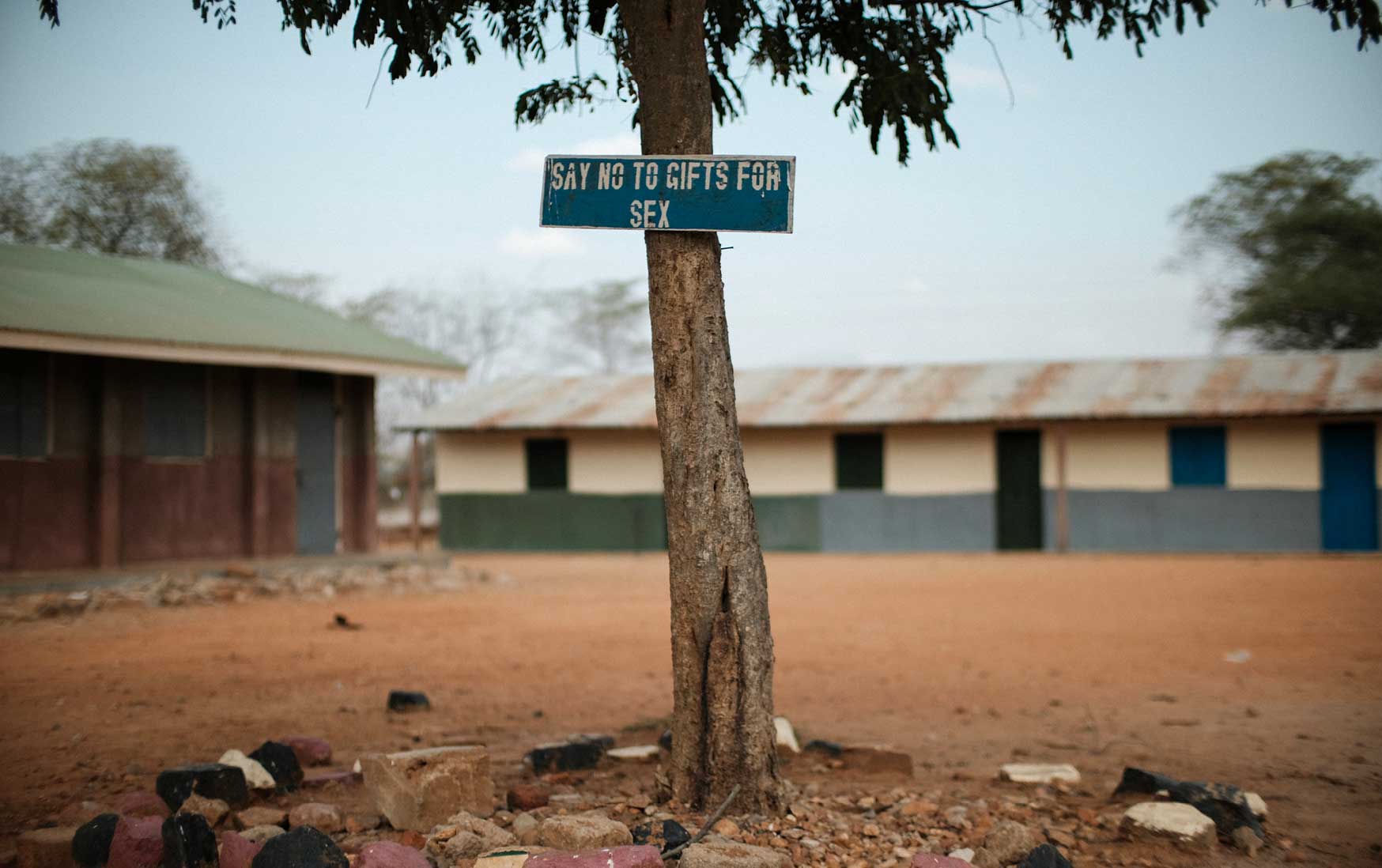
Another paper by Kim Jonas and colleagues in 2019, ‘Nurses’ Perceptions of Adolescents Accessing and Utilising Sexual and Reproductive Healthcare Services in Cape Town, South Africa: a Qualitative Study’, found that the way nurses interacted with adolescent girls seeking sexual and reproductive healthcare services in Cape Town were generally positive. However, non-compliance and repeated terminations were viewed by nurses as irresponsible, which resulted in negative attitudes towards girls. These negative attitudes and responses further complicate access to sexual and reproductive health services.
Challenges to the funding of sexual and reproductive healthcare services are yet another issue confronting the sexual and reproductive health of the African girl child. This is because, in several African countries, sexual and reproductive healthcare services are supported by international aid agencies and international organisations such as the Swedish Development Agency, the UNFPA and USAID, to name a few. This is due to the lack of capacity and budgetary constraints to meet the demand for these services.
This challenge is further amplified by the recent United States Supreme Court ruling that overturned Roe vs Wade, the landmark ruling, which until this year protected abortion rights in the US. The ruling raises concerns among some African reproductive health researchers, and civil society organisations focused on reproductive health, that some African countries could use the overturning of Roe as justification to roll back reproductive health access and services.
Some countries may take the overturning of Roe as a signal to promote their conservative views on abortion and reproductive health, thus making it less of a priority for them. More conservative-leaning US donor organisations may also use the overturn of Roe to place conditions on aid money, which would make it harder for women and girls to access sexual and reproductive healthcare services.
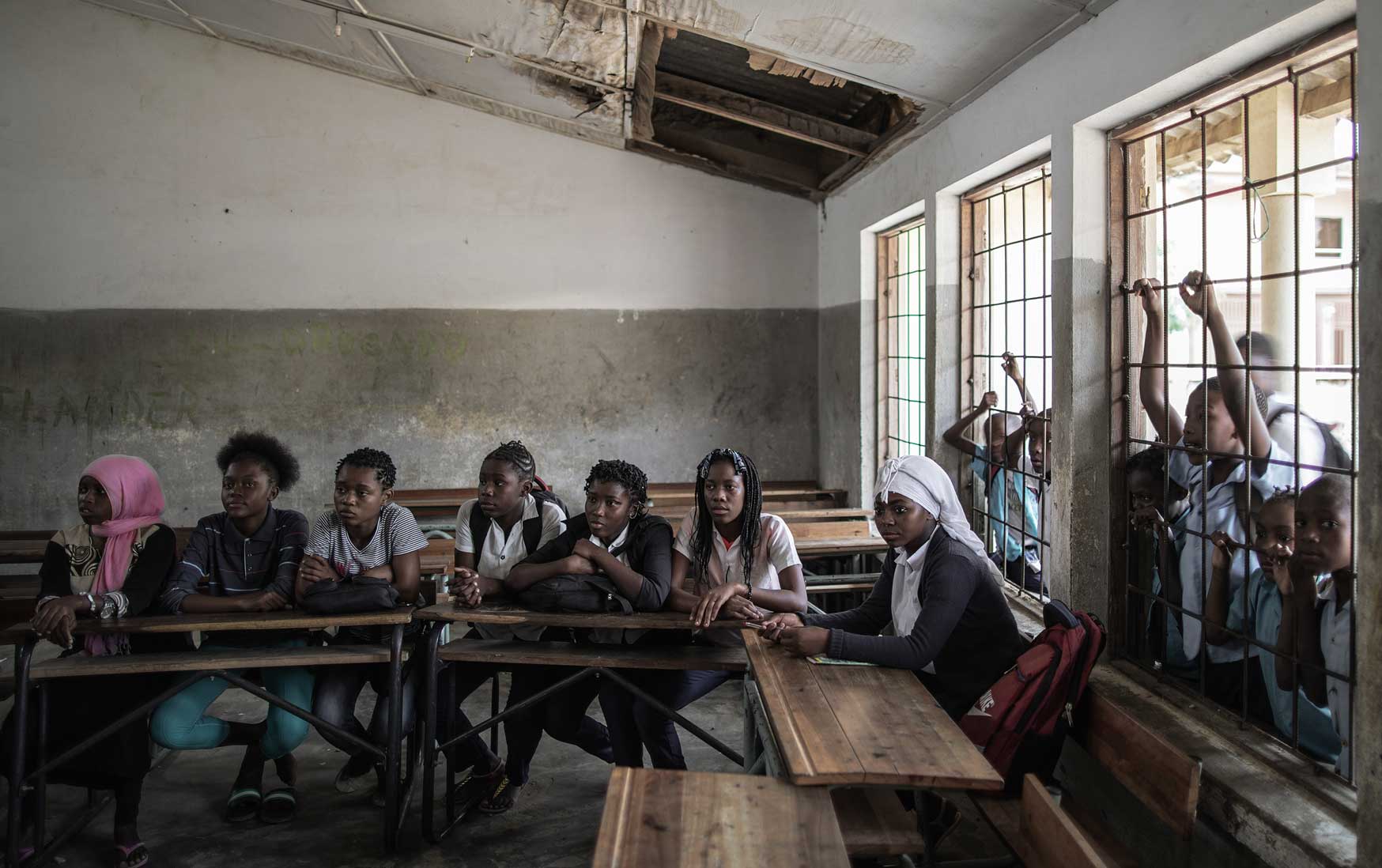
Mozambican girls listen to a contraception methods and sexual education briefing at a public school organised by the United Nations Fund for Population activities in partnership with the Mozambican Health Department.
Friday Okonofua, the editor in chief of the African Journal of Reproductive Health and leader at the Centre of Excellence in Reproductive Health Innovation, University of Benin, Nigeria, points out that several of the gains African countries have made in improving reproductive health and taking a rights-based approach to sexual and reproductive health have been supported by Roe.
According to the United Nations High Commissioner for Refugees (UNHCR), “Sexual and reproductive health (SRH) implies that people can have a satisfying and safe sex life, and have the capability to reproduce and the freedom to decide if, when, and how often to do so.”
Unfortunately, a predominantly abstinence-based approach to reproductive health and reduced access to sexual and reproductive healthcare services such as contraception, abortion, condoms, and treatments for sexually transmitted diseases, does not make the issues of teenage pregnancy, risky sexual behaviour, or STIs disappear. Instead, removing access to safe abortions increases the number of women and girls that use illegal “backstreet” abortion services, and reducing access to condoms and contraceptives increases both STIs and the risks of unwanted pregnancies.
Overall, the consequences of the Covid-19 pandemic and the recent overturning of Roe vs Wade in the US have the potential to derail the past decade of progress in sexual and reproductive health on the continent. This means that African governments will need to play a greater role in both the financing of sexual and reproductive healthcare services and in creating an enabling regulatory environment. A commitment to maintaining and securing sexual and reproductive health is crucial to the security and successful future of the African girl child.
Vincent Obisie-Orlu is a Natural Resource Governance researcher at Good Governance Africa. He holds a BA in International Relations and Political Studies from the University of the Witwatersrand. His work focuses on natural resource governance of critical minerals, Environmental Social and Governance (ESG) issues, sustainable finance, and energy policy in light of the energy transition.

